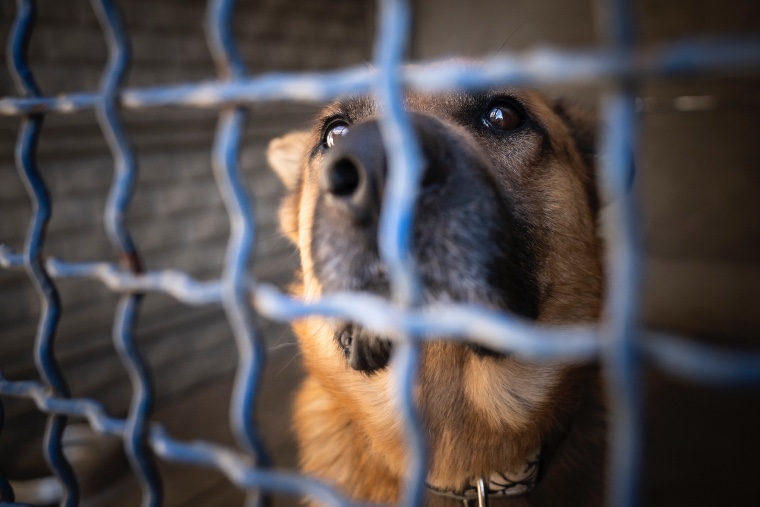PAWS Atlanta, the oldest non-kill shelter in the city, hopes to find new homes for animals. Over the course of last year, their mission has become more difficult as economic uncertainty leads to an influx in the rate of pet surrender.
Shelters See Influx of Pet Surrender
Speaking with CNN, Joe Labriola, the head of the rescue organization, says it has become evident that pet owners are facing financial struggles due to rising costs and inflation. Elsewhere, other shelters have also noticed an increase in the rate of owners surrendering their pets.
Data from 2022 indicated more animals entered a shelter than left according to Shelter Animals Count, a national organization that collects data on animal shelters. At PAWS Atlanta, the majority of daily calls come from individuals wishing to rehome animals. Currently, the shelter’s “surrender queue” is at capacity as many other pets are still waiting to be adopted. As the shelter sits at maximum capacity, the resources to sustain shelter animals dwindle.
“A number of animals are being abandoned that have serious medical issues,” Labriola explains. “The only thing we can guess is that people just can’t afford those expenses, and they’re hoping by dropping off [their pets] at our facility that we’re going to be able to pick up the slack. And we do as best we can, but it’s really putting a strain on our resources.”
Rising Costs Lead to Difficult Decisions
High housing costs also contribute to the rate of surrender. As a result, many pet owners are unable to manage the increase in rental prices and are forced to look elsewhere. It can also be difficult to find affordable housing that also accepts pets.
Last February, the Consumer Price index declined to 6%. The “pets, pet products and services” index increased 10.9%, while pet food increased to 15.2%. Additionally, veterinary services rose almost 2 points to 10.3%. Price increases on products, services, and veterinary care further contributed to the rising costs of pet ownership.
Pet owners are cutting back on costs elsewhere in order to make up for the increased cost of pet ownership. Some are curbing back on clothes shopping or electricity use, while others buy cheaper groceries.
Under the strain of the increased financial costs, pet owners are turning to shelters as a last resort. Because shelters are often at capacity and the animal intake waiting queue is too long, some choose to abandon their pets.
Many shelters nationwide offer diversion programs. If people need to surrender their animals, shelters will offer subsidized vet care, food, behavioral help, or consultations. Options remain limited.
The Humane Society of the United States has many resources for people facing financial challenges. Pet Help Finder is a database that may assist with finding financially friendly care, food, boarding, and supplies.









